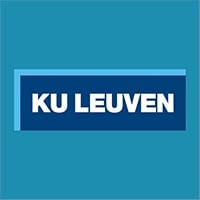PhD position – Swelling induced Snapping
Position Details (PhD Research Project)
The soft robotics research group from the Department of Mechanical Engineering at KU Leuven focuses on exploring the intersection of soft robotics, mechanical instabilities and (micro)fabrication. The greater goal is to create systems that are able to interact with humans by harnessing the unique characteristics of soft materials and creating functionality by means of mechanical design. We focus both on the theoretical design of such system, their numerical optimization, and the experimental validation on prototypes that range from the centimeter to the millimeter scale.
Website unit
Project
——————
Swelling hydrogels are typically slow as diffusing water into the hydrogel network takes time. Especially in mechanically though hydrogels this is a problem, as more dense networks restrict the movement of water even further. Plants suffer from the same limitation, however the Venus flytrap circumvents this restriction by harnessing mechanical instabilities to rapidly close its leaves. The main goal of this project is to create hydrogel structures at the millimeter scale that transform a slow swelling of the material into a rapid output movement. Starting from the swelling hydrogels (developed by a collaborator in this project), the goal of this doctoral work is to design such structures numerically and validate them experimentally using millimeter-sized prototypes. We are thus looking for a creative researcher that combines analytical rigor with experimental savviness. A background in finite element analysis and/or micromanufacturing (lithography) is a plus.
This position is linked to the Biospheres project, aimed at developing Biomimetic soft PH triggered systems (FWO grant G007825N).
Profile
——————
The ideal candidate fulfils the following requirements:
Master degree in (mechanical) engineering, physics, materials science or equivalent with at least distinction
Strong background in solid mechanics and micromanufacturing
Familiar with finite element modelling and experimental validation
Proficiency in English
The candidate must be creative, have good problem solving skills, should be ambitious but should above all be a team player!
Offer
——————
– A doctoral scholarship of four years and, if successful, a PhD in Engineering Science
– A full-time employment for four years, with an intermediate evaluation after one year
– Benefits such as health insurance, access to university sports facilities, etc.
– The opportunity to be active in an exciting and international research environment, engage in research collaborations and participate at international conferences
– An excellent doctoral training at the Arenberg Doctoral School in an international environment at a top European university. This will allow you to gain the skills required to successfully complete your PhD, as well as develop yourself as an independent researcher. Moreover, opportunities are provided to acquire deeper knowledge in subjects related to the topic by participating in trainings, summer schools, or lecture series in- and outside of KU Leuven
– Starting date: April 2025 (but somewhat flexible for the ideal candidate).
Soft Robotics GroupA Swelling Problem
Interested?
——————
For more information please contact Prof. Benjamin Gorissen through e-mail: [email protected]
To apply, use the KU Leuven online application platform (applications by email are not considered).
Please include:
a) an academic CV and a PDF of your diplomas and transcript of course work and grades
b) a statement of research interests and career goals (max 2pages), indicating why you are interested in this position
c) a sample of technical writing, e.g. a paper with you as main author, or your master’s thesis
d) a brief report (max 2 pages in PDF) covering your solution to the research problem that can be found here: https://softroboticsgroup.wordpress.com/wp-content/uploads/2025/01/a-swelling-problem.pdf
KU Leuven strives for an inclusive, respectful and socially safe environment. We embrace diversity among individuals and groups as an asset. Open dialogue and differences in perspective are essential for an ambitious research and educational environment. In our commitment to equal opportunity, we recognize the consequences of historical inequalities. We do not accept any form of discrimination based on, but not limited to, gender identity and expression, sexual orientation, age, ethnic or national background, skin colour, religious and philosophical diversity, neurodivergence, employment disability, health, or socioeconomic status. For questions about accessibility or support offered, we are happy to assist you at this email address.



 KU Leuven
KU Leuven